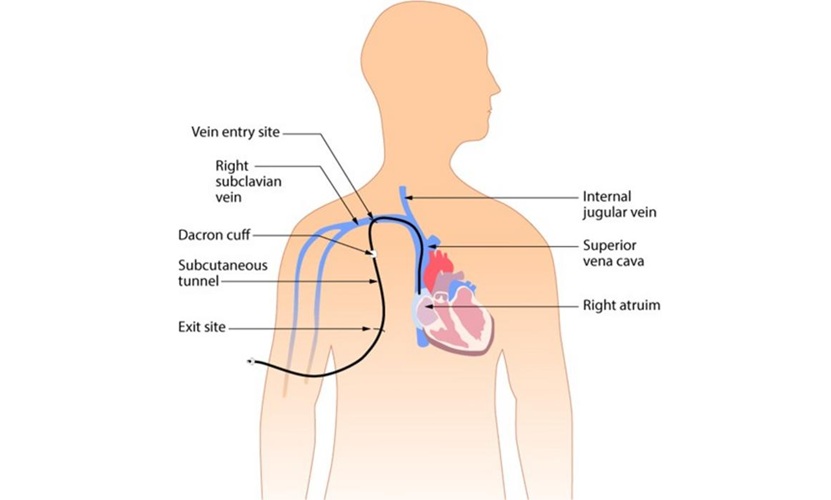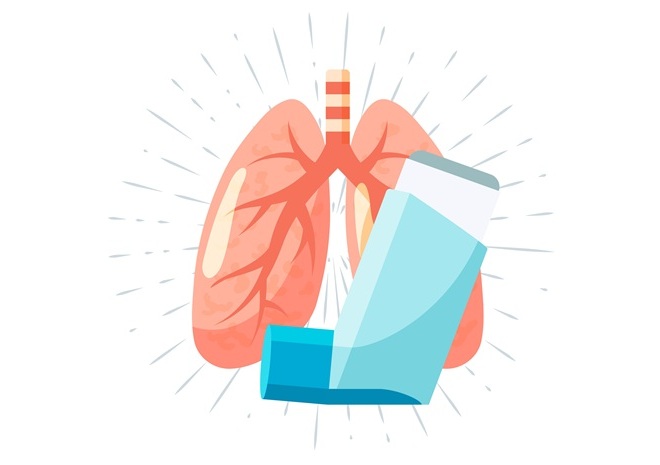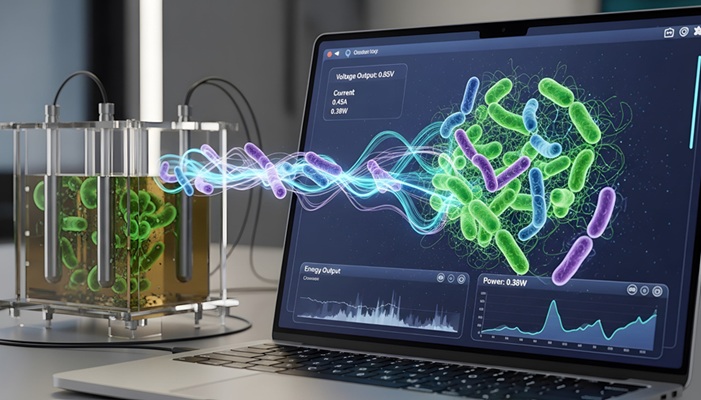Google Shows AI Can Predict Lung Cancer from CT Scans
|
By HospiMedica International staff writers Posted on 01 Jun 2019 |
Google LLC (Mountain View, CA, USA) has shared new research demonstrating how artificial intelligence (AI) can predict lung cancer to boost the chances of survival for people at risk across the world.
Since 2017, Google has been exploring how AI can be used to address the challenges in screening people at a high-risk for lung cancer with lower dose CT screening that leads to unclear diagnosis, subsequent unnecessary procedures, and financial costs. Google used advances in 3D volumetric modeling along with datasets from its partners for modeling lung cancer prediction and laying the groundwork for future clinical testing.
Generally, radiologists go through hundreds of 2D images within a single CT scan with cancer being miniscule and hard to spot. Google researchers created a model that can generate the overall lung cancer malignancy prediction (viewed in 3D volume) as well as identify subtle malignant tissue in the lungs (lung nodules). The model can also factor in information from previous scans, which can be useful in predicting lung cancer risk as the growth rate of suspicious lung nodules can be an indicator of malignancy.
The researchers leveraged 45,856 de-identified chest CT screening cases and validated the results with a second dataset and also compared their results against six US board-certified radiologists. They found that when using a single CT scan for diagnosis, their model performed on par or better than the six radiologists and detected 5% more cancer cases while reducing false-positive exams by more than 11% as compared to unassisted radiologists in the study. Google’s approach achieved an AUC (a common metric used in machine learning that provides an aggregate measure for classification performance) of 94.4%.
With only 2-4% of eligible patients in the US being currently screened for lung cancer, Google’s research demonstrates the potential for AI to increase accuracy as well as consistency, which could help accelerate the adoption of lung cancer screening globally. Google now plans to conduct further studies to assess its impact and utility in clinical practice. It is collaborating with Google Cloud Healthcare and Life Sciences team to serve the model through the Cloud Healthcare API and is holding discussions with its partners across the world to continue additional clinical validation research and deployment.
Related Links:
Google
Since 2017, Google has been exploring how AI can be used to address the challenges in screening people at a high-risk for lung cancer with lower dose CT screening that leads to unclear diagnosis, subsequent unnecessary procedures, and financial costs. Google used advances in 3D volumetric modeling along with datasets from its partners for modeling lung cancer prediction and laying the groundwork for future clinical testing.
Generally, radiologists go through hundreds of 2D images within a single CT scan with cancer being miniscule and hard to spot. Google researchers created a model that can generate the overall lung cancer malignancy prediction (viewed in 3D volume) as well as identify subtle malignant tissue in the lungs (lung nodules). The model can also factor in information from previous scans, which can be useful in predicting lung cancer risk as the growth rate of suspicious lung nodules can be an indicator of malignancy.
The researchers leveraged 45,856 de-identified chest CT screening cases and validated the results with a second dataset and also compared their results against six US board-certified radiologists. They found that when using a single CT scan for diagnosis, their model performed on par or better than the six radiologists and detected 5% more cancer cases while reducing false-positive exams by more than 11% as compared to unassisted radiologists in the study. Google’s approach achieved an AUC (a common metric used in machine learning that provides an aggregate measure for classification performance) of 94.4%.
With only 2-4% of eligible patients in the US being currently screened for lung cancer, Google’s research demonstrates the potential for AI to increase accuracy as well as consistency, which could help accelerate the adoption of lung cancer screening globally. Google now plans to conduct further studies to assess its impact and utility in clinical practice. It is collaborating with Google Cloud Healthcare and Life Sciences team to serve the model through the Cloud Healthcare API and is holding discussions with its partners across the world to continue additional clinical validation research and deployment.
Related Links:
Channels
Artificial Intelligence
view channelCritical Care
view channel
AI Tool Identifies Trauma Patients Requiring Blood Transfusions Before Reaching Hospital
Severe bleeding is one of the most common and preventable causes of death after traumatic injury. However, current tools often fail to accurately identify which patients urgently require blood transfusions,... Read more
New Clinical Guidelines to Reduce Central Line-Associated Bloodstream Infection
Central venous catheters are essential in intensive care units, delivering life-saving medications, monitoring cardiovascular function, and supporting blood purification. However, their widespread use... Read moreSurgical Techniques
view channelAI-Based OCT Image Analysis Identifies High-Risk Plaques in Coronary Arteries
Lipid-rich plaques inside coronary arteries are strongly associated with heart attacks and other major cardiac events. While optical coherence tomography (OCT) provides detailed images of vessel structure... Read moreNeural Device Regrows Surrounding Skull After Brain Implantation
Placing electronic implants on the brain typically requires removing a portion of the skull, creating challenges for long-term access and safe closure. Current methods often involve temporarily replacing the skull or securing metal plates, which can lead to complications such as skin erosion and additional surgeries.... Read morePatient Care
view channel
Revolutionary Automatic IV-Line Flushing Device to Enhance Infusion Care
More than 80% of in-hospital patients receive intravenous (IV) therapy. Every dose of IV medicine delivered in a small volume (<250 mL) infusion bag should be followed by subsequent flushing to ensure... Read more
VR Training Tool Combats Contamination of Portable Medical Equipment
Healthcare-associated infections (HAIs) impact one in every 31 patients, cause nearly 100,000 deaths each year, and cost USD 28.4 billion in direct medical expenses. Notably, up to 75% of these infections... Read more
Portable Biosensor Platform to Reduce Hospital-Acquired Infections
Approximately 4 million patients in the European Union acquire healthcare-associated infections (HAIs) or nosocomial infections each year, with around 37,000 deaths directly resulting from these infections,... Read moreFirst-Of-Its-Kind Portable Germicidal Light Technology Disinfects High-Touch Clinical Surfaces in Seconds
Reducing healthcare-acquired infections (HAIs) remains a pressing issue within global healthcare systems. In the United States alone, 1.7 million patients contract HAIs annually, leading to approximately... Read moreHealth IT
view channel
EMR-Based Tool Predicts Graft Failure After Kidney Transplant
Kidney transplantation offers patients with end-stage kidney disease longer survival and better quality of life than dialysis, yet graft failure remains a major challenge. Although a successful transplant... Read more
Printable Molecule-Selective Nanoparticles Enable Mass Production of Wearable Biosensors
The future of medicine is likely to focus on the personalization of healthcare—understanding exactly what an individual requires and delivering the appropriate combination of nutrients, metabolites, and... Read moreBusiness
view channel
Medtronic to Acquire Coronary Artery Medtech Company CathWorks
Medtronic plc (Galway, Ireland) has announced that it will exercise its option to acquire CathWorks (Kfar Saba, Israel), a privately held medical device company, which aims to transform how coronary artery... Read more
Medtronic and Mindray Expand Strategic Partnership to Ambulatory Surgery Centers in the U.S.
Mindray North America and Medtronic have expanded their strategic partnership to bring integrated patient monitoring solutions to ambulatory surgery centers across the United States. The collaboration... Read more
FDA Clearance Expands Robotic Options for Minimally Invasive Heart Surgery
Cardiovascular disease remains the world’s leading cause of death, with nearly 18 million fatalities each year, and more than two million patients undergo open-heart surgery annually, most involving sternotomy.... Read more


















